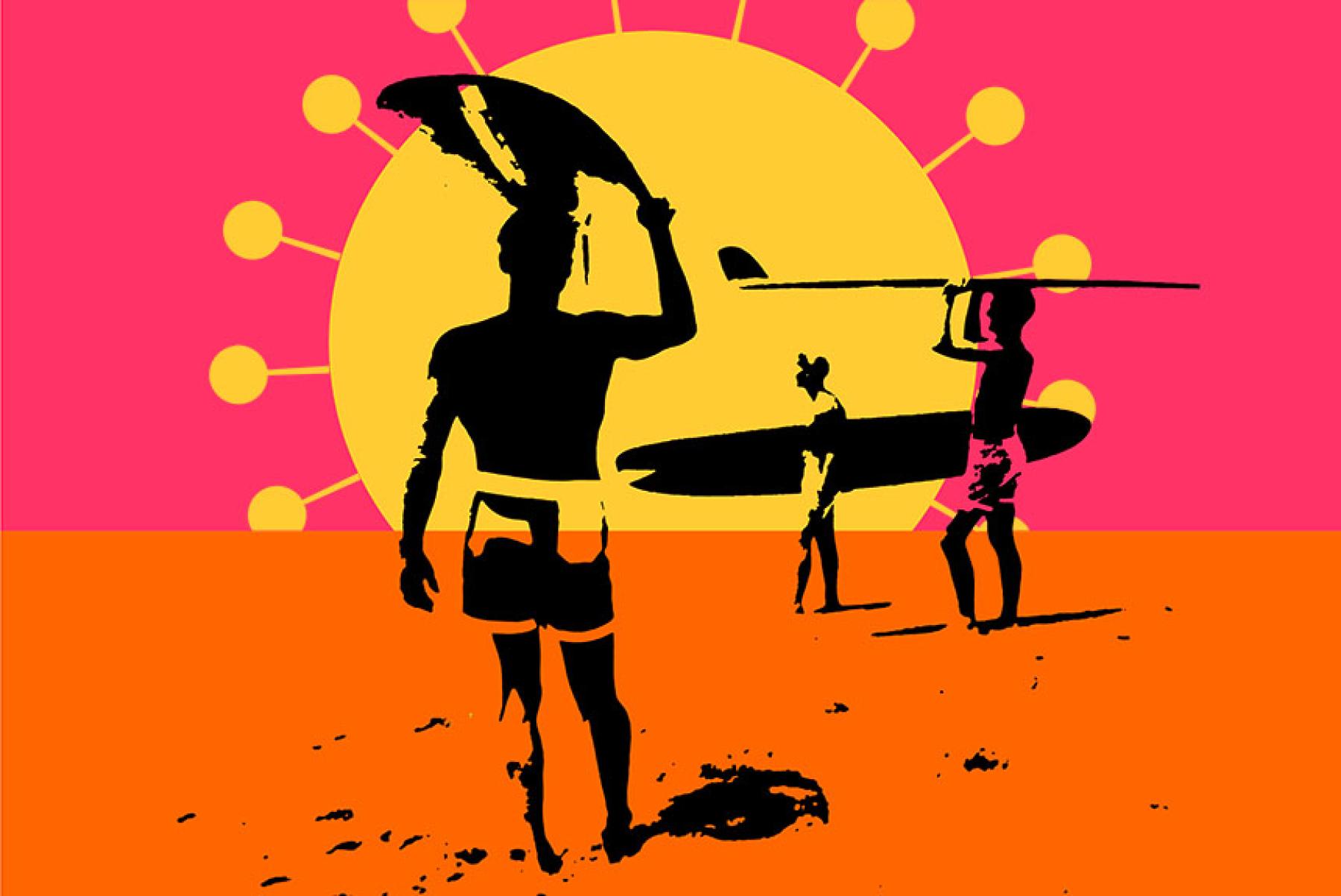Saving Summer by Acting Safer and Smarter

Here we are at Memorial Day weekend, the traditional start to summer. But this year, neighborhood barbecues are a bad idea. Summer camps are cancelled. And many of us are wondering how to vacation within a 10-mile radius of our homes.
This week’s pressing question is whether summer can be saved without sacrificing fall and winter.
Increasingly, the answer appears to be a qualified “yes.” Scientists’ growing knowledge of the new coronavirus can help people live fuller, less isolated lives and allow parts of the economy to reopen.
But it will be a tricky balancing act. It will require political leaders and public health officials to keep their focus on the long term. And it will require almost everyone to be policymakers for themselves, adopting and sticking to practices that lessen the risk of spreading the virus.
Two events from the past week show the competing pressures of public health and the economy.
First, three Colorado children are suspected to have a rare but serious inflammatory syndrome associated with COVID-19. It’s another unexplained aspect of this new disease that makes it even harder for families to calculate risks.
Second, this morning the state reported the April unemployment rate shot up to 11.3%, the highest on record. Just two months ago, Colorado was enjoying a 2.5% unemployment rate, meaning that nearly every Coloradan who wanted a job had one.
(CHI makes frequent updates to our coronavirus policy timeline to track developments like these.)
So how can we balance medical risks with demands to get the economy back on track — and to let outdoors-loving Coloradans enjoy the summer?
We can look to a growing body of research on how the virus spreads. Three key factors appear to be density, duration, and ventilation.
- Density. The virus spreads easily in big cities and crowded workplaces, like meatpacking plants.
- Duration. The longer uninfected people linger in a spot where someone is infected, the more likely they are to get sick. The Centers for Disease Control and Prevention says exposures of 15 minutes or more are considered prolonged, and therefore a higher risk.
- Ventilation. People are more likely to catch the virus indoors than outdoors.
It’s important to note that most COVID-19 research is new and has not undergone peer review. When in doubt, it’s best to be cautious.
The good news, though, is we can use the tools we already have to lower our risks.
Dr. Atul Gawande reports in The New Yorker that staff at his large hospital system in Boston have kept a very low infection rate by applying four familiar defenses: wearing masks, frequently washing hands, maintaining a 6-foot distance between people, and screening for symptoms often.
With all this in mind, we can say in general that you’re safest at home (as long as no one in the house is infected). You’re safer outside than inside. You’re safer keeping your distance from others or minimizing the length of contact when you can’t. You should wear a mask inside any building that isn’t your house and outside except for sparsely occupied places. And you should wash your hands frequently.
Summer fun will be different in 2020, but it doesn’t need to be cancelled. Concerts and festivals present a high risk — dense crowds where people linger for a long time. Running in the park, bike riding, and hiking present lower risks, as long as people take precautions.
Saving summer requires a more complex and nuanced message than some public health professionals feel comfortable offering. It puts more faith in individual judgment than the easy-to-understand directive to stay home as much as possible.
Throughout summer, the focus of individuals and public servants needs to be on the fall and winter. The prospect of a second round of COVID-19 is frightening, and if we don’t take extreme precautions this summer, there’s a good chance schools will have to close, businesses will follow, and we’ll all be trapped inside again.
But there’s also a chance that this weekend could be the start of something everyone could use — some good, low-risk summer fun.
